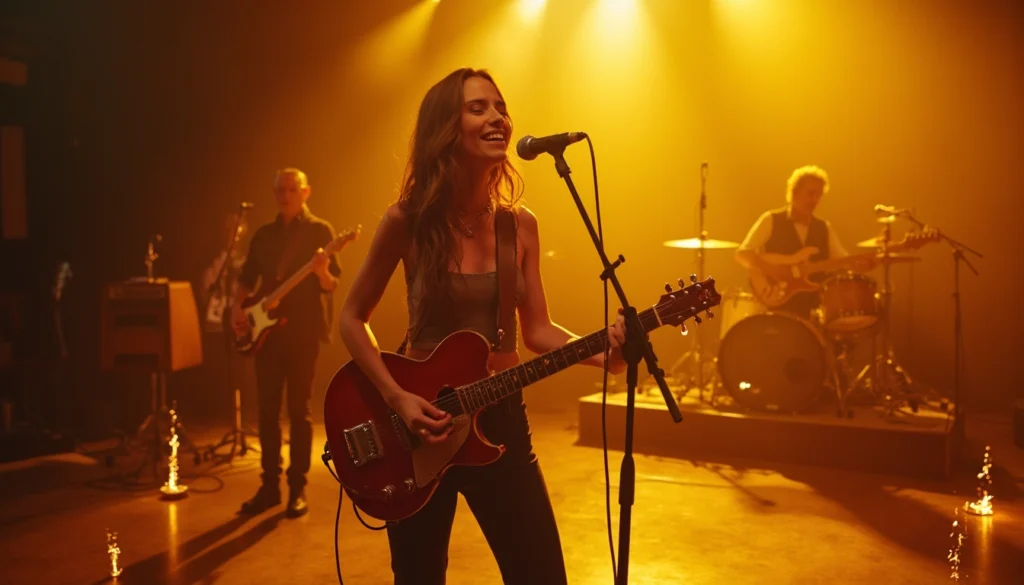Every event promoter aims to maximize return on investment (ROI) by driving ticket sales, reducing costs, and optimizing every dollar spent. However, achieving profitability goes beyond just selling out your venue—it requires a well-planned strategy to ensure every action you take translates into revenue. In this guide, we’ll cover three targeted strategies that can significantly boost your event’s ROI and help you hit your profitability goals. Let’s dive into advanced tactics that will make a real difference.
1. Define Clear Goals and Track Key Metrics

Maximizing ROI starts with understanding your metrics—track, measure, and optimize in real-time to ensure every marketing dollar is well-spent.
Establishing Event-Specific Metrics
To truly optimize your event’s profitability, start by defining granular, event-specific metrics that directly impact your bottom line. While general metrics like overall revenue are helpful, dig deeper into Cost Per Acquisition (CPA), Return on Ad Spend (ROAS), and Average Revenue Per Attendee (ARPA).
- Cost Per Acquisition (CPA): This metric helps you understand how much you’re spending to acquire each ticket buyer. To maximize your event’s profitability, aim to keep CPA as low as possible by targeting your ads more effectively. For example, if your CPA is $20 but your average ticket price is $25, you’re only making a $5 profit per attendee. Finding ways to reduce CPA can significantly increase your profit margins.
- Average Revenue Per Attendee (ARPA): This metric measures how much revenue you generate from each attendee beyond just ticket sales. Focus on upselling strategies like merchandise, food, and VIP packages to boost ARPA. Offering limited-edition merchandise can drive impulse purchases, significantly increasing your total revenue.
- Return on Ad Spend (ROAS): By tracking ROAS, you can see which marketing channels are delivering the best returns. If Instagram ads yield a ROAS of 5x, meaning you earn $5 for every $1 spent, it’s wise to allocate more budget to that channel.
Real-Time Monitoring of Campaigns
Tracking conversion rates across different channels in real-time allows you to make quick adjustments. For instance, if your Facebook ads are generating clicks but not leading to ticket sales, it may indicate a disconnect between your ad messaging and the landing page content. Adjusting the call-to-action (CTA) or refining your targeting can yield better results.
Utilize tools like Google Analytics, HubSpot, or Facebook Ads Manager to monitor performance metrics. By setting up automated alerts for low engagement rates, you can immediately pivot your strategy to focus on channels with higher conversion rates. For example, you might notice that video ads on Instagram have a higher engagement rate than static images—use this insight to prioritize video content in your campaigns.
Post-Event Analytics for Long-Term Insights
The work doesn’t end once the concert is over. Post-event analytics provide valuable insights into what worked and what didn’t. Focus on metrics like Customer Lifetime Value (CLV) and Customer Retention Rate to gauge the long-term value of your attendees.
- Customer Lifetime Value (CLV): If a significant portion of your audience attends multiple concerts each year, their CLV is higher. Identify these loyal attendees and prioritize them in your future marketing efforts with exclusive offers or early ticket access.
- Customer Retention Rate: After your event, use surveys and follow-up emails to collect feedback. This information not only improves future events but also strengthens relationships with your audience. Building a loyal community can lead to more consistent ticket sales over time.
Want to reach the right audience and boost ticket sales? Learn the secrets to targeting high-value segments and increasing conversions with our guide on Using Market Segmentation to Increase Concert Ticket Sales!
2. Invest in High-Impact Marketing Channels

The key to high-impact marketing is not just reaching more people—it’s reaching the right people with the right message at the right time.
Social Media and Retargeting
Social media platforms are essential for driving ticket sales, but it’s not just about posting content—it’s about leveraging the advanced targeting tools available. A well-structured retargeting campaign can significantly boost conversions by focusing on users who have already interacted with your content. For instance, set up retargeting ads that focus on users who watched your event trailer, visited the ticketing page, or engaged with your social media posts.
To maximize the impact, use Lookalike Audiences on platforms like Facebook and Instagram. These audiences are built by analyzing your existing customer base and finding similar users who are likely to engage with your event. This tactic helps you extend your reach without wasting ad spend on irrelevant viewers.
Don’t forget to utilize features like Instagram Stories and TikTok Ads, which are highly effective for reaching younger demographics. Stories are great for real-time updates, while TikTok’s short, engaging videos can build hype in a fun, creative way.
Prioritize Influencer Partnerships
Influencer marketing remains one of the most effective ways to generate buzz, especially when targeting niche audiences. For maximum impact, partner with micro-influencers who have strong engagement within specific communities. For example, if you’re hosting a rock concert, collaborate with local musicians or music bloggers who have a loyal following.
Offer unique incentives for influencers, such as backstage passes or exclusive meet-and-greets. This not only motivates them to promote your event but also creates authentic content that resonates with their followers. Additionally, track the performance of influencer campaigns by using UTM parameters or unique discount codes to measure their direct impact on ticket sales.
Geo-Targeted Campaigns for Local Reach
When hosting a concert in a specific city, leveraging geo-targeting can optimize your ad budget by focusing only on people who are within a reasonable travel distance. Geo-targeted ads can also include localized content, making the event feel more relevant to potential attendees. For instance, use language like “New York’s Hottest Summer Concert” to attract local fans.
Take it a step further by utilizing geo-fencing, which targets people who are in specific locations, like other concerts, sports events, or popular local hangouts. This approach ensures that you’re reaching potential attendees who are already interested in live entertainment, increasing the likelihood of conversions.
Want to go deeper into the platforms and strategies that actually drive ticket sales? Explore the most effective marketing channels for concert success right here.
3. Effective Pricing Strategies for Immediate Impact

Smart pricing isn’t just about setting the right price—it’s about strategically adjusting it to capture every possible dollar.
Dynamic Pricing
Dynamic pricing is a game-changer for maximizing ticket revenue. This strategy involves adjusting ticket prices in real-time based on demand and availability. For example, as your event gets closer and ticket availability decreases, you can gradually increase prices to create urgency. If your concert is about to sell out, you can sell the last tickets at a higher price. You can play with price elasticity to your favor to get more revenue! This tactic leverages the principle that fans are often willing to pay more as they fear missing out on a sold-out event.
Conversely, if ticket sales are lagging, you may use flash discounts to attract more buyers and stimulate demand. By leveraging software that automatically adjusts prices based on preset conditions. This approach is commonly used in industries like airlines and hotels and can be highly effective for concert promotions. Additionally, use data from previous events to set initial pricing and establish thresholds for when prices should increase.
Bundling Tickets and Merchandise
Creating bundled packages can drive higher average ticket values. For instance, combine tickets with exclusive merchandise, such as limited-edition t-shirts, posters, or vinyl records. This strategy not only appeals to superfans but also encourages them to spend more upfront.
To target high-end buyers, develop tiered VIP packages that include perks like priority entrance, meet-and-greets, or access to a VIP lounge. Adding extras like a personalized lanyard or photo opportunities can further entice fans to upgrade their ticket purchases. This tactic not only increases revenue per ticket but also enhances the overall concert experience.
Consider bundling services beyond merchandise, such as food vouchers or transportation options for attendees coming from nearby cities. This not only adds convenience but also encourages fans to purchase higher-value packages.
Discount Strategies to Encourage Early Purchases
First things first: discounts can be a double-edged sword if not used strategically. However, they are excellent tools for driving early sales. Early-bird discounts help you secure a solid base of attendees early on, reducing the pressure as the event date approaches. To create a sense of urgency, offer these discounts for a limited time or limited quantity.
Flash sales can sometimes be effective for boosting ticket sales in slower periods. For instance, a “24-hour VIP discount” can stimulate interest and drive impulse purchases. Additionally, consider using loyalty discounts for past attendees, which not only increases repeat attendance but also builds long-term brand loyalty.
Want to dive deeper into advanced pricing strategies that drive ticket sales and maximize profits? Check out our detailed guide on proven pricing and promotion tactics to ensure your next concert is a financial success!
Take Action Now to Maximize Your Event’s ROI!
Maximizing your event’s ROI requires a strategic approach that covers everything from defining clear metrics to investing in high-impact marketing channels and implementing effective pricing strategies. By leveraging these techniques, you can boost your event’s profitability and ensure every effort you make translates into tangible results. Whether you’re focusing on social media ads, influencer partnerships, or dynamic pricing, these strategies will help you maximize every dollar spent.
Don’t leave your event’s profitability to chance. Contact our team today for personalized strategies to maximize your ROI!






